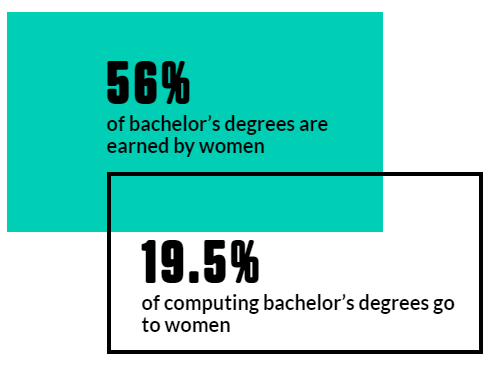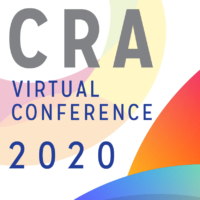Expanding the Pipeline: The Center for Inclusive Computing offers funding opportunities to increase the representation of women in undergraduate computing

“At the Center, we are working to move the national needle of women in computing, leading with inclusivity and taking a holistic but intersectional approach. It has never been more important for the computing population to reflect the demographics of today’s world.”
– Carla Brodley, Executive Director of the Center and Dean of Northeastern’s Khoury College of Computer Sciences
 Housed at Northeastern’s Khoury College of Computer Sciences, the Center for Inclusive Computing (“the Center”) serves as a catalyst in helping universities take the lead in educating more women in computing, both to meet a significant economic need and to address the issues of social inequity and exclusion. The Center awards funding to colleges and universities to scale best practices known to increase the representation of women in undergraduate computing. While these best practices are well documented and widely known, stagnant percentages indicate that uptake has been slow.
Housed at Northeastern’s Khoury College of Computer Sciences, the Center for Inclusive Computing (“the Center”) serves as a catalyst in helping universities take the lead in educating more women in computing, both to meet a significant economic need and to address the issues of social inequity and exclusion. The Center awards funding to colleges and universities to scale best practices known to increase the representation of women in undergraduate computing. While these best practices are well documented and widely known, stagnant percentages indicate that uptake has been slow.
In order to accelerate change, the Center invites nonprofit colleges and universities to apply for one of two funding opportunities: Best Practice Grants and Data Grants.
Best Practice Grants fund the implementation of evidence-based approaches that have been shown to quickly and substantially increase the representation of women in computing. To qualify, schools must graduate 200 or more computing graduates annually. Grants range from $500,000 to $2,000,000 with the goal of implementing tailored interventions to address each institution’s unique challenges to broadening participation. Launched last fall, the Center is actively working with twelve institutions to implement significant curricular, pedagogical, and/or cultural improvements targeted at inclusion. As part of the grant, schools receive support from Technical Advisors, senior level computing faculty who have firsthand experience in implementing changes that have led to significant increases in representation of women in computing. “We are on hand to provide feedback and guidance to the project team as they plan and implement the funded interventions. Best Practice Grants are a game changer for diversifying computing programs!” says Tracy Camp, Technical Advisor and Department Head of Computer Science at Colorado School of Mines.
In addition to funding and technical assistance, collecting data for diagnostic and evaluation purposes represents another key aspect of the Center’s work. Many of the interventions the Center funds are targeted at the introductory computer science sequence, which is widely accepted as a critical point in the computing pipeline. With this in mind, the Center designed a unique and robust survey that looks specifically at course to course persistence in introductory computer science sequences. By taking an intersectional approach and tracking gender and ethnicities of students, this data identifies precisely where groups underrepresented in computing are leaving the major.
While Best Practice Grants provide crucial funding and advisory support for transformational and sustainable changes, Data Grants offer schools the resources to diagnose precisely where their undergraduate pipeline may be leaking. Schools awarded a Data Grant are funded $60,000 over two years to participate in the Center’s data collection initiative, gaining access to a critical tool that can identify pivotal areas in need of improvement. To qualify, schools must graduate 100 or more computing graduates annually. The aim of the data collection initiative is to benefit the individual schools and inform researchers and university leadership on what exactly works to make their computing program a welcome place for all.
The Center seeks to significantly grow the network of schools committed to creating sustainable change in undergraduate computing programs across the country. The goal is to award at least 25 Best Practice Grants and 40 Data Grants. Funding will occur twice per year until those goals are reached.
- Schools can apply for a Data Grant starting September 4, 2020.
- Applications for Best Practice Grants and Data Grants are due October 23, 2020.
To learn if your institution is eligible and how to apply, please visit our website for more information or email inquiries to khoury-cic@northeastern.edu.
About the Author
Sally Wynn is the Program Coordinator for the Center for Inclusive Computing. She primarily handles communications and grant processing for the Center. Sally earned a master’s degree in Public Health from Boston University with a certificate in Health Policy & Law.









